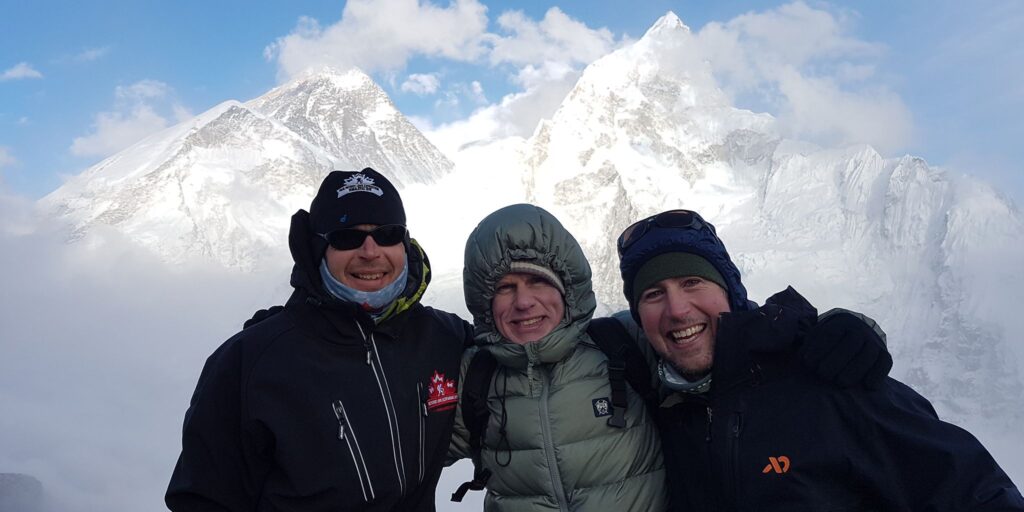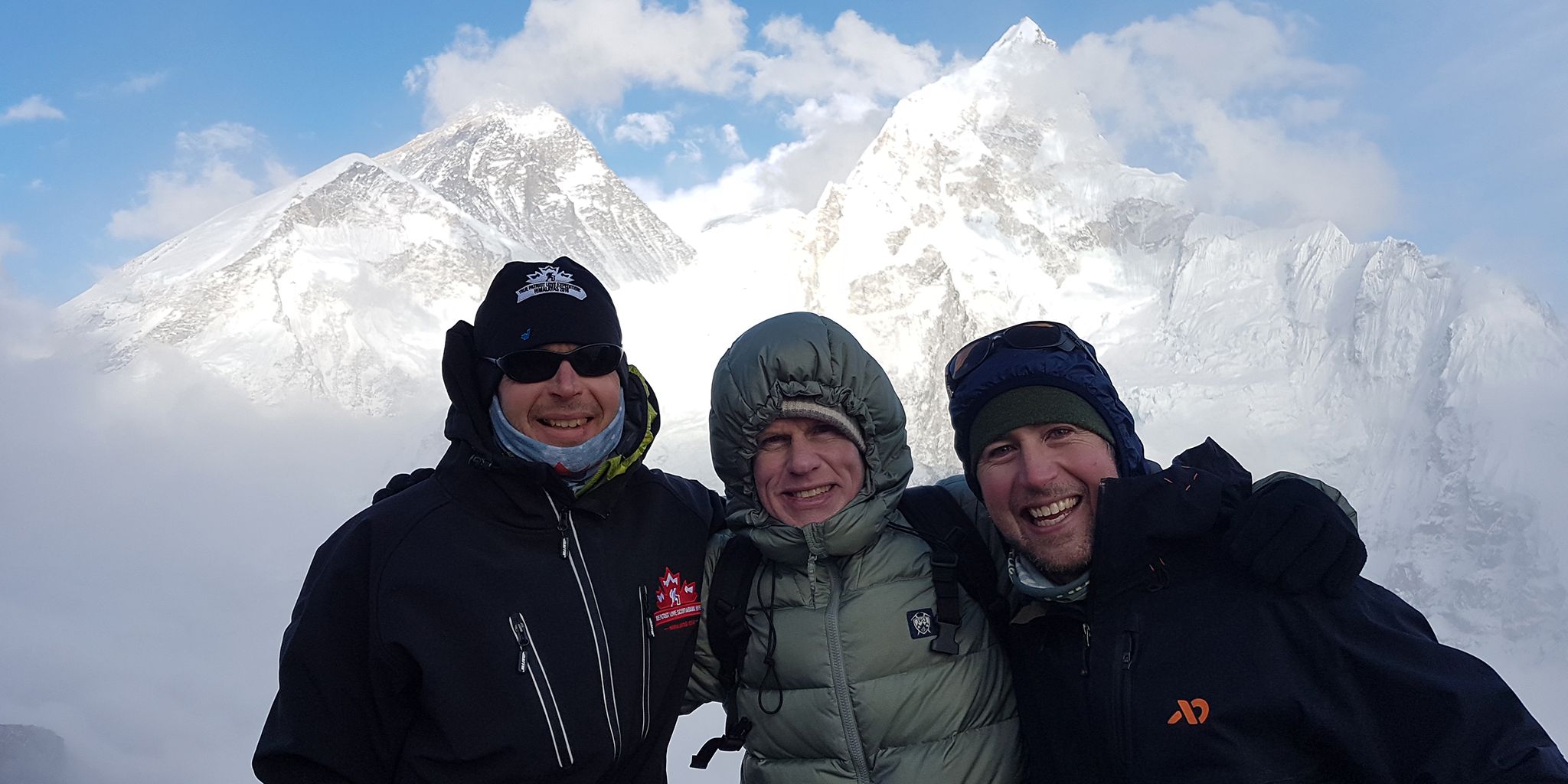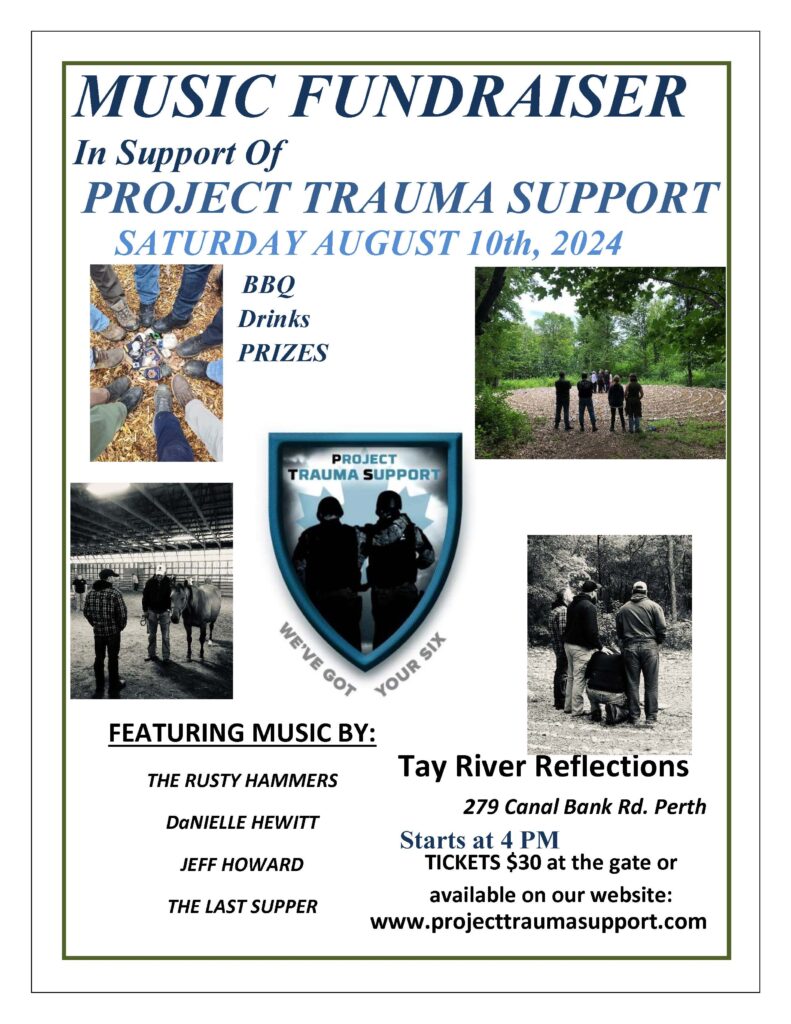 It has been said that soldiers fight mostly for love of their comrades in arms. As both a civilian and military physician, over the last 34 years I have heard hundreds of stories from the people who serve our country. The following is an attempt to give a voice to those whom I have had the privilege to serve and to showcase the valuable lessons they have taught me on the subject of love.
It has been said that soldiers fight mostly for love of their comrades in arms. As both a civilian and military physician, over the last 34 years I have heard hundreds of stories from the people who serve our country. The following is an attempt to give a voice to those whom I have had the privilege to serve and to showcase the valuable lessons they have taught me on the subject of love.
Dr. Markus Besemann just retired as Head of Rehabilitation Medicine for the Canadian Armed Forces. He is one of our Project Trauma Support physicians. This is an article he had published in the Atlas Journal. The “Atlas” was previously known as the “Centre for Excellence for PTSD”
In October 1991, I was posted to the National Defence Medical Centre (NDMC) in Ottawa. We were told to stand by for the admission of some of the survivors of the ill-fated Hercules 130322 Boxtop 22 crash, just kilometres away from Canadian Forces Station Alert. As those requiring medical care were admitted, we heard stories of the courageous pilot Captain John Couch, who gave up his own cold-weather clothing so that others would live. This selfless gesture led to his own death from exposure just hours before the search and rescue team reached the scene. This moment marked the beginning of my understanding of the depth of self-sacrifice that military personnel and Veterans are no strangers to. In my young officer’s mind, this was nothing short of Biblical love.
Several years later, I was walking alongside a senior submariner who, with tears in his eyes, told me all about the Chicoutimi submarine disaster and how with few exceptions, those who saved the day were some of the less polished “bad apples.” Their rough and ready backgrounds had inadvertently prepared them for the unexpected. In other words, what caused them and others distress in peacetime served them very well when catastrophe hit. Another lesson on love: Don’t judge a book by its cover. It is what is hidden inside a man or woman that really counts, no matter how this strength of character is acquired.
Another story that deeply affected me came from a combat medic in Afghanistan who was tasked with carrying a casualty on his shoulders during an ambush in the darkness of night. Given the load he was carrying, he lost sight of his platoon. Bewildered and lost, he searched for direction, until he eventually saw another brother in arms at the end of the road pointing the way home. He successfully reunited with his unit, only to find out later that the brother pointing the way had been killed earlier that evening in a firefight in another village. Soldiers do not desert their comrades, even after they die.
“And though they did hurt me so bad…You did not desert me My brothers in arms.”
Brothers in Arms, Dire Straits
Stories such as these are not uncommon in the context of war. They have been well described in the diaries of soldiers from previous conflicts. They help illustrate the extreme paradox that is present on the battlefields of life. Despite the horrific destruction and death, love persists and rises above it all. As a medical doctor, I have personally heard countless such stories over the years and I have been drawn to ask myself, who am I to question these lived experiences and the messages they convey?
Many military personnel appear to know from a very young age that they wish to serve. This may be the result of a dream passed on by military Families or one borne out of a sense of somehow feeling that they were called to be the protectors of society. The dedication with which service personnel pursue this life calling never ceases to amaze me. It is the deepest form of love. The conflicting tragedy and beauty of this incarnation, which benefits many of the more privileged in society, is that it comes at a tremendous cost to the Veteran. Many Veterans elected to put on the uniform and swear an oath to make the world a better place. This however can often leave them with many unanswered questions and harsh self-judgment for choices made or not made.
Veterans have taught me that self-love is one of the hardest “missions” they have ever undertaken and that this can be a long soul-searching and sometimes gut-wrenching journey. Given that the definition of mission success is expressed in extraordinary acts of bravery, it is often difficult for Veterans to put themselves first and love themselves unconditionally because of the morally conflicting decisions they have had to make in the line of duty. The challenge over the long term for the Veteran is to realize that this acquired identity does not define them. One of the greatest obstacles for Veterans in their healing journey is to learn to embrace their authentic self despite the possibility that this process might lead to a completely different narrative about who they are and how others might view them. Only when they can reconcile their identity as a soldier and their true essence as a human being can they begin the journey towards forgiveness. It has been said that true forgiveness occurs when you finally realize that there was nothing to forgive in the first place.
Love is often difficult for Veterans to demonstrate. Sometimes their love is shown when they volunteer to take another’s place on patrol or lay out a comrade’s air mattress at 3 a.m. because their fire team partner is still on sentry duty. Veterans’ expressions of love can be rough around the edges and displayed in brutal honesty and dark humour. The tough love they express for their comrades and their steadfast commitment to their core beliefs and values often goes unrecognized by many civilians and is often misunderstood. It is the deepest form of love I have ever had the privilege to witness. In its sheer rawness, it shaves away all the fluff we so often mistakenly take for signs of love, but that in reality is so far removed from what love actually is. Ultimately, what unites us all —whether civilian or military — are our individual struggles with loving and forgiving ourselves unconditionally, understanding that we all at some point in our lives fall short of our idealistic expectations, but that we restore balance by expressing compassion to ourselves and to others.
This is amongst the most important lessons learned, that despite the suffering Veterans have endured and continue to endure, there is value and a purpose to all of it. If embraced, it can teach us all more about how to love and be loved. If I were to try and summarize as succinctly as possible the essence of what it is that I am trying to convey in the name of those who have sacrificed so much, it would be the notion of embracing the paradox of life. The world our Veterans have seen and experienced is as horrific as it is beautiful. At the end of the day, they have shown us and continue to show us that ALL of it is love in its various manifestations.
LCol (Ret’d) Markus Besemann CD, BSc, MD, FRCP(C), Dip. Sport Med. (CASEM)
Learn more about moral injury, the impact of events or acts that a person performs, witnesses or fails to prevent, which conflict with one’s own deeply held moral beliefs and values.
Dr. Markus Besemann just retired as Head of Rehabilitation Medicine for the Canadian Armed Forces. He is one of our Project Trauma Support physicians. This is an article he had published in the Atlas Journal. The “Atlas” was previously known as the “Centre for Excellence for PTSD”


